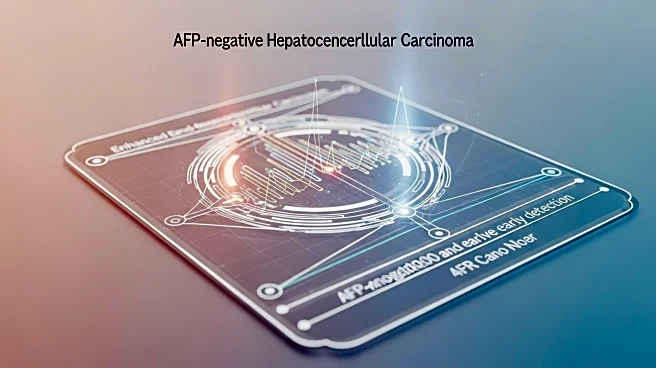What is the story about?
What's Happening?
A recent multicenter study has developed a nomogram based on autoantibodies for the noninvasive detection of AFP-negative hepatocellular carcinoma (ANHCC). The study utilized serological proteome analysis and protein microarray to identify potential autoantibodies, followed by validation using ELISA in patients with ANHCC. Eight autoantibodies were validated as superior biomarkers, and a logistic regression model was found to be optimal for diagnosing ANHCC. The model achieved an area under the ROC (AUC) of 0.883 in the training dataset and 0.840 in the validation dataset. When combined with AFP, the model's efficacy improved significantly, achieving an AUC of 0.945.
Why It's Important?
The development of this diagnostic model is crucial for improving the detection of ANHCC, a challenging condition to diagnose due to the absence of the AFP marker. By integrating autoantibody biomarkers with AFP, the model enhances diagnostic accuracy, potentially leading to earlier and more effective treatment for patients. This advancement could significantly impact patient outcomes and reduce mortality rates associated with hepatocellular carcinoma. The study's findings may also encourage further research into autoantibody-based diagnostics for other cancers.
Beyond the Headlines
The integration of machine learning methods in developing the diagnostic model highlights the growing role of artificial intelligence in healthcare. This approach not only improves diagnostic accuracy but also offers a framework for future innovations in cancer detection. The study underscores the importance of interdisciplinary collaboration in advancing medical research and the potential for personalized medicine to transform cancer care.














